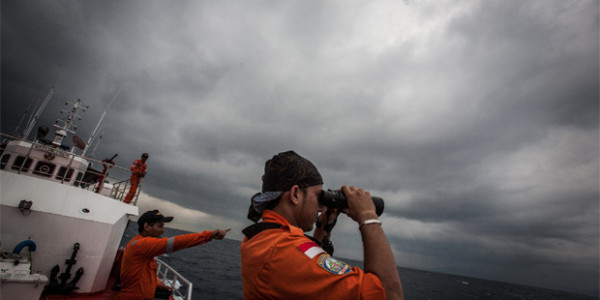Taylor Scott International News
Malaysia says jet’s disappearance ‘deliberate’ (AFP) / 16 March 2014 Najib’s announcement opened a whole new avenue of speculation including an attempted 9/11-style attack. A missing Malaysian airliner was apparently deliberately diverted and flown for hours after vanishing from radar, Prime Minister Najib Razak said Saturday, stopping short of confirming a hijack but taking the excruciating search for the jet into uncharted new territory. Najib said investigators believed “with a high degree of certainty” that systems relaying Malaysia Airlines flight 370’s location to air traffic control were manually switched off before the jet veered westward in a fashion “consistent with deliberate action”. But a grave-looking Najib told a press conference watched around the globe that he could not confirm whether the plane had been forcibly taken over. “Despite media reports that the plane was hijacked, I wish to be very clear: we are still investigating all possibilities as to what caused MH370 to deviate from its original flight path,” he said. He called it an “excruciating time for the families of those on board”. The new information appeared to cast aside a host of theories on the plane’s disappearance, which has transfixed the world and left frustrated families of the 239 passengers and crew baying for scarce information. Previous scenarios included a sudden mid-air explosion, catastrophic equipment or structural failure, or a crash into the South China Sea. But Najib’s announcement opened a whole new avenue of speculation including an attempted 9/11-style attack. The 9/11 hijackers had turned off the transponders of three of the four planes that were commandeered. Transponders transmit data on a plane’s location to air traffic controllers. MH370’s transponder was manually shut off, Najib said. The plane’s Aircraft Communications Addressing and Reporting System (ACARS) was also switched off, he added. Final satellite communication with the Boeing 777, scheduled to fly from Kuala Lumpur to Beijing, came more than six-and-a-half hours after it vanished from civilian radar at 1:30am on March 8, said Najib. That would equate with the time Malaysia Airlines has said the plane would have run out of fuel. Investigators had concluded the plane was diverted west from its original flight path, and thus a search in the South China Sea would end, Najib said, but would continue in the Indian Ocean. But the new search zone is now dauntingly large — Najib said the plane could be anywhere from Kazakhstan to the southern Indian Ocean. Earlier, a senior Malaysian military official had told AFP investigators believed the plane was commandeered by a “skilled, competent and current pilot” who knew how to avoid radar, stopping short of speculating whether a hijacker or crew member was suspected. An aviation expert told AFP that while it is easy to turn transponders off, a great deal of expertise is needed to disconnect ACARS. Dozens of ships and aircraft from 14 countries have been deployed across a huge search zone since MH370 went missing. As the search continues, investigators will focus on who would have diverted it and why. Malaysian security officials were earlier embarrassed by revelations that two Iranian men had managed to board the plane using stolen European passports. It could also bring new attention on Captain Zaharie Ahmad Shah, 53, and his First Officer Fariq Abdul Hamid, 27. Malaysian reporters told AFP they witnessed police enter Zaharie’s house on Saturday, staying for two hours. Police declined comment to AFP. An Australian television station had days earlier broadcast an interview with a South African woman who alleged she and a friend were invited into the cockpit of a flight Fariq co-piloted in 2011 — a breach of post-9/11 security rules. The New York Times quoted American officials with knowledge of the investigation saying the plane saw wild fluctuations in altitude after it changed course. “Investigations should focus on criminal and terrorist motives,” said Rohan Gunaratna, a terrorism expert at Singapore’s Nanyang Technological University. “It is likely that the aircraft was hijacked by a team knowledgeable about airport and aircraft security. It is likely they are supported by a competent team from the ground.” Anthony Brickhouse, a member of the International Society of Air Safety Investigators, said the evidence pointed at “human intervention”. “I’m sure they (investigators) are going over every single passenger on board that aircraft to try to see if they have anything in their background that would speak on what happened,” he said. But Gerry Soejatman, a Jakarta-based independent aviation analyst, told AFP Saturday’s revelations make a possible terror motive “extremely difficult to understand”. “If that was deliberate, we may be dealing with something beyond the mission planning for 9/11,” he said. Most of the plane’s passengers were Chinese and the Malaysian leader’s remarks did little to ease the nerves of anguished relatives gathered at a hotel in Beijing. “I feel (Malaysia Airlines) has been playing a role in the incident,” said Wen Wancheng, whose son was aboard, suspecting “a conspiracy”. He remained hopeful his son was alive. The airline defended its handling of the crisis, which it called “an unprecedented situation for Malaysia Airlines and for the entire aviation industry.” The plane has one of the best safety records of any jet, and the airline also has a solid record. For more news from Khaleej Times, follow us on Facebook at facebook.com/khaleejtimes , and on Twitter at @khaleejtimes Taylor Scott International
Taylor Scott International, Taylor Scott








